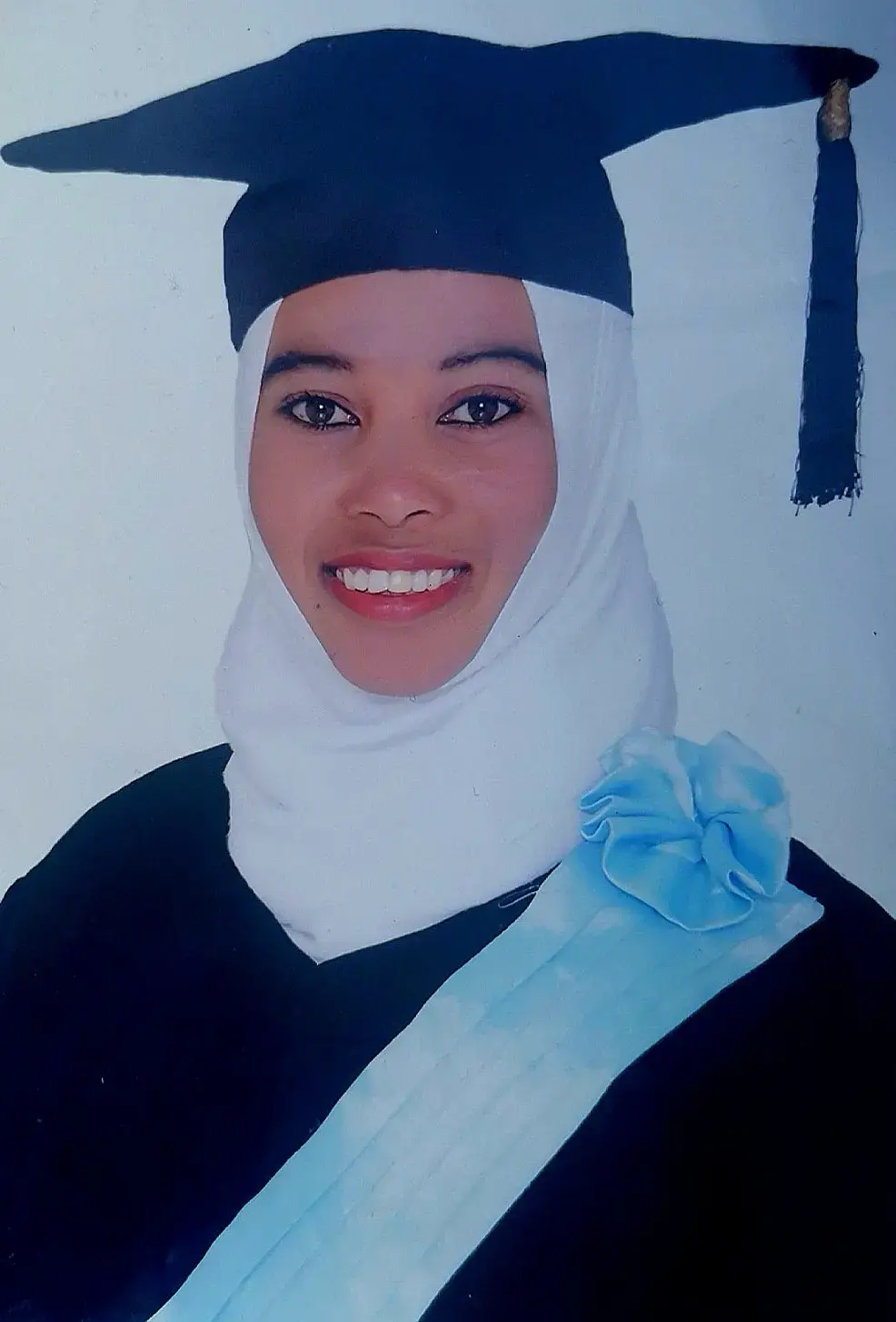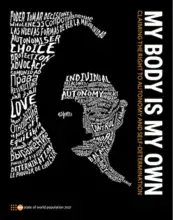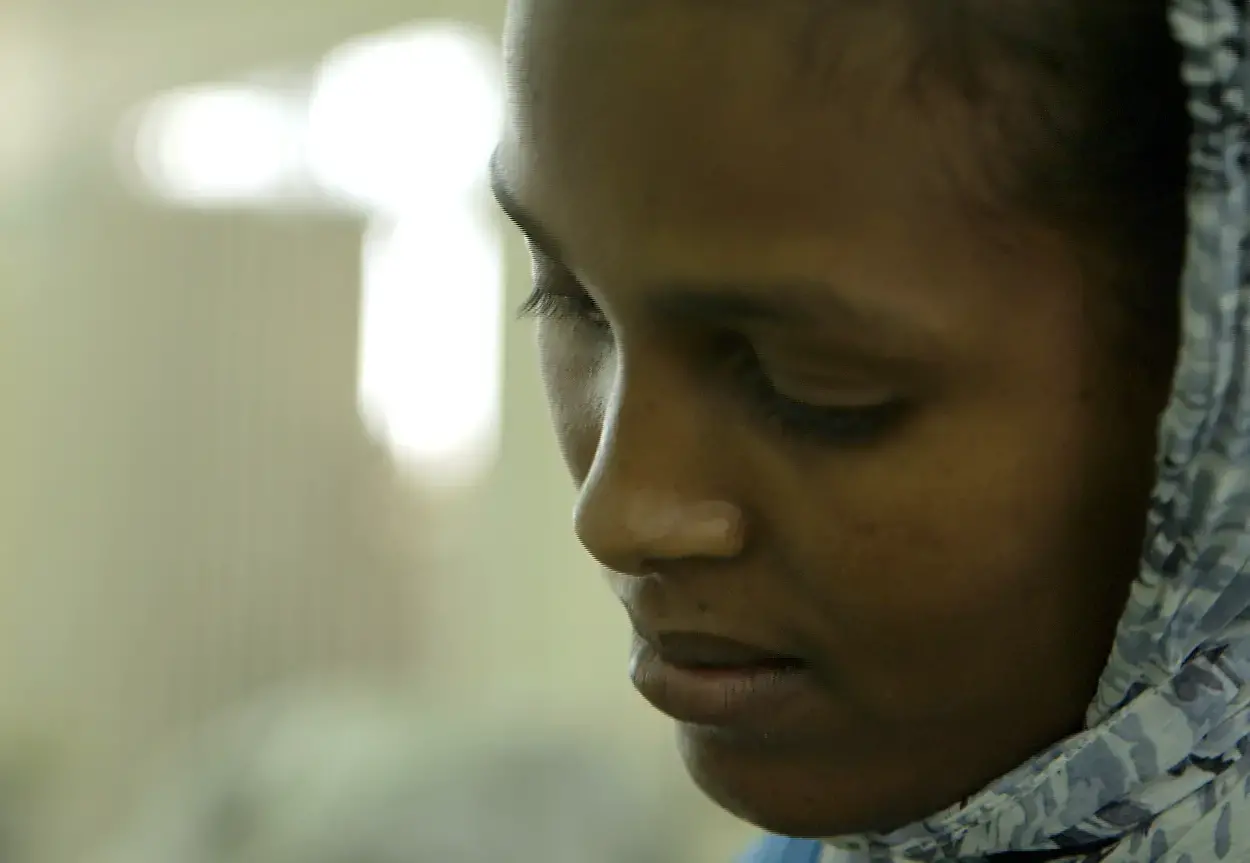Fatma Hamid was born in 1994 in the historical town of Nakfa, and as one listens to her speak, one cannot help but draw parallels between this young woman’s traumatizing battles against and ultimate defeat of society’s chains and the city’s own history – a history of resilience and an unbreakable spirit that ultimately came to symbolize Eritrean freedom fighters and the 30 years they spent in the trenches in the fight for self-determination and freedom.
In many ways, Fatma’s story is about a girl who fought for her own freedom and her right to self-determination – she wanted to attend school, to finish high school, to go to Sawa, to earn a B.A. degree, to complete her National Service, and, in due course, to decide for herself the life that best suits her vision.
She accomplished all of this and much more, but it came at a heavy price – a constant battle at home between a mother who wanted her to attend school and a father who wanted to marry her off; a painful divorce that affected the children terribly; bitter harassment from family members who brought her suitors as old as her father; being forced to work in order to cover her school expenses when her father left and refused to help raise his children; a secretly arranged marriage that almost went through; her fleeing from home and hiding until the marriage date passed; and much more.
Although Fatma does a fantastic job of hiding it, all of this also came with a feeling of exhaustion from always having to defend her choices – to go to school, to go to Sawa, to go to college, to complete her National Service – against people who tried to push her in a direction diametrically opposed from her own dreams for herself.
“If it weren’t for my mother’s faith in me, I probably would have been married by the age of 12”, she exclaims.
Fatma’s mother was taken out of school and married off by the age of 14, and by 16 she had her first child. Fatma is the oldest of 4 children, and she recalls her mother constantly fighting for her children’s, especially her daughter’s, right to go to school. “Even when my parents got divorced and my mother could barely make ends meet by working several jobs including cleaning our local hospital, offices, and other manual labour, she never took me out of school,” Fatma remembers.
“She didn’t want to see what happened to her repeated with me. She was my biggest supporter, even though they almost broke her down a few times,” Fatma’s voice cracks as she recalls all the sacrifices her mother endured for the sake of her children.
“The only way I could repay her was to keep placing first in my class,” she recalls.
Her father and other family members, however, continued waging wars to force her to marry. To Fatma’s disappointment, her mother’s strength had waned by the time Fatma was nearing the time to head to Sawa. Apparently they managed to convince her by presenting the next suitor as a teacher who would see to it that Fatma would continue her education even after marriage. Never mind the fact that the man was almost three times her age and had taught Fatma when she was in elementary school.
The dowry was set, and so was the date, but Fatma had no idea what was being planned behind her back.
Her best friend was also in on this. When Fatma later confronted her, she was utterly shocked by the sound of defeat in her best friend’s answer: “we’re all going to be married off eventually. This is our fate. Stop fighting it.” Fatma recalls her saying.
This is when a plan to flee came into play. Luckily for Fatma, as one of the best performing students in her school, she was selected to attend a highly competitive awareness and empowerment course ran by the National Union of Eritrean Youth and Students in Xaeda Kristian, a place not far from Asmara. Fatma happily jumped on the occasion promising to be back in time for the planned wedding date, but knowing full well this was her ticker out.
Just as she planned, Fatma ran away from home, completed the course in Xaeda Kristian, hid with a compassionate family member in Asmara until the date of the wedding had passed and eventually headed to and completed high school in Sawa. She then earned a qualifying grade for college and joined the Eritrean Institute of Technology.
With the war to marry her off still waging in the background, Fatma graduated with a degree in Applied Biology, after which she was placed in Sawa for two years, where she was nominated by students and awarded a prize for teaching excellence. After two years in Sawa she is now back at Mai Nefhi as part of the management team for student affairs focusing on empowering young women like her to stay the course through seminars, frequent interviews, writing and other engagements.
She plans to eventually continue her education, Clinical Psychology, she says, and wants to work in a field that empowers young women like her to stand up and fight for their rights.
Perhaps most astonishingly, when asked if she harbours any grudges towards those who tried to derail her all these years, she smiles and confidently declares: “not at all, I actually feel pity for them, it really is a reflection of their own limitations and not of me or my abilities.”
It is worth noting here that the law in Eritrea prohibits forced early marriage and sets the legal age for consensual marriage at 18. The Government’s campaign, through civil society groups such as the National Union of Eritrean Women (NUEW) as well as the National Union of Eritrean Youth and Students (NUEYS), in all six regions, to end this obnoxious practice is well documented, and includes harsh monetary punishments and even jail time for parents who are caught breaking the law.
Sadly, however, these archaic cultural customs that rob young girls of their voice and agency seem to endure no matter the punishments and so the battle rages on and it often falls on empowered young women, such as Fatma, to take up matters into their own hands.
Many succeed, but many more, such as Fatma’s other friends, see it as a battle too big to wage, let alone win, and at worse as their duty to society.
This fact alone has pushed Fatma to join a group of young women from different backgrounds and fields to set up a sub-chapter, under the guidance of the NUEW, to work on issues like girl’s education, FGM, child marriage, and other topics that they feel is relevant to young women.






